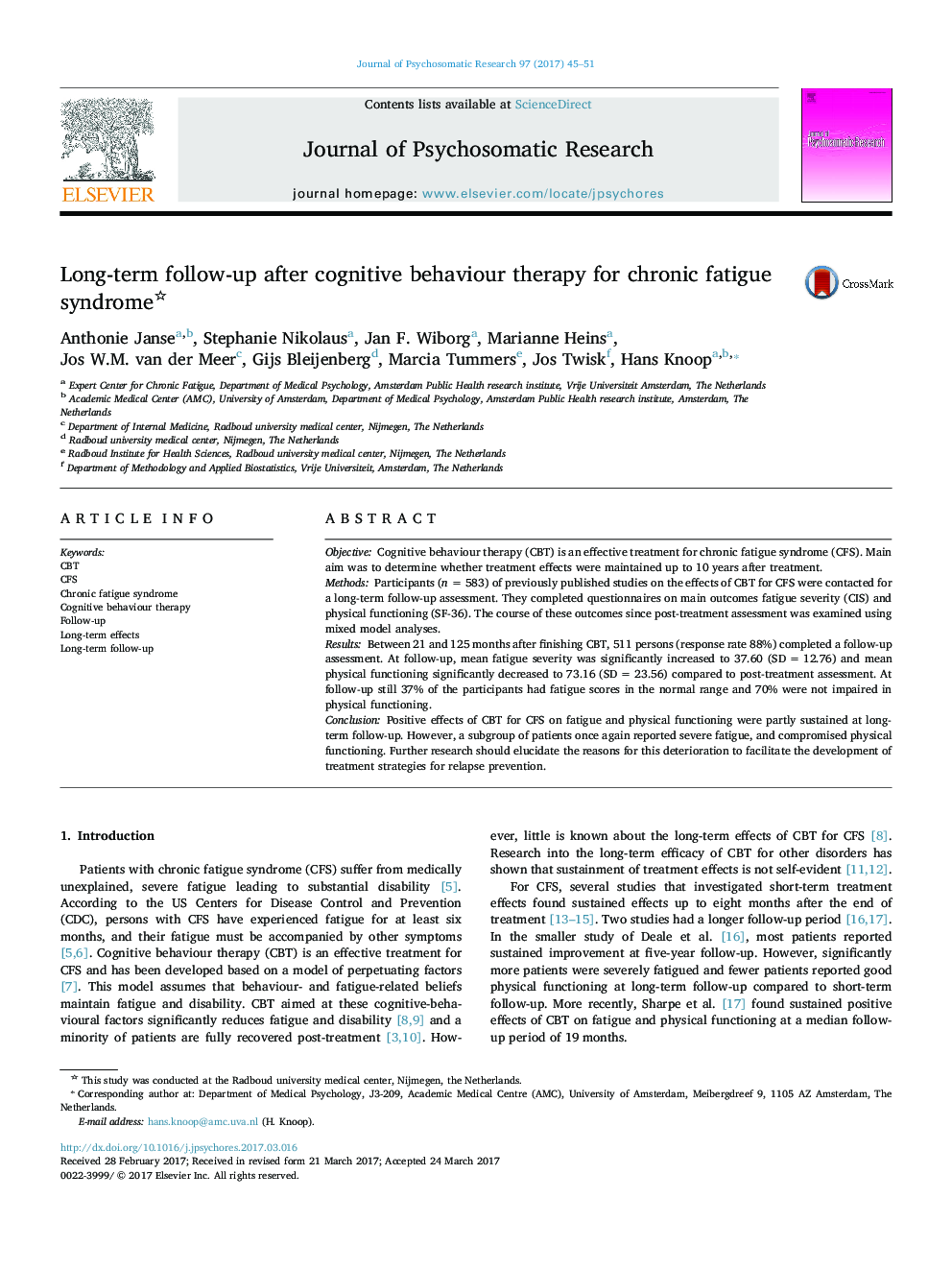| Article ID | Journal | Published Year | Pages | File Type |
|---|---|---|---|---|
| 5045982 | Journal of Psychosomatic Research | 2017 | 7 Pages |
â¢Positive effects of CBT for CFS are partly maintained at long term follow-up, up to 10 years post treatment.â¢One out of two of all participants does not perceive themselves as a CFS patient.â¢A subgroup of patients shows evidence of relapse and once again report severe fatigue and/or compromised physical functioning
ObjectiveCognitive behaviour therapy (CBT) is an effective treatment for chronic fatigue syndrome (CFS). Main aim was to determine whether treatment effects were maintained up to 10 years after treatment.MethodsParticipants (n = 583) of previously published studies on the effects of CBT for CFS were contacted for a long-term follow-up assessment. They completed questionnaires on main outcomes fatigue severity (CIS) and physical functioning (SF-36). The course of these outcomes since post-treatment assessment was examined using mixed model analyses.ResultsBetween 21 and 125 months after finishing CBT, 511 persons (response rate 88%) completed a follow-up assessment. At follow-up, mean fatigue severity was significantly increased to 37.60 (SD = 12.76) and mean physical functioning significantly decreased to 73.16 (SD = 23.56) compared to post-treatment assessment. At follow-up still 37% of the participants had fatigue scores in the normal range and 70% were not impaired in physical functioning.ConclusionPositive effects of CBT for CFS on fatigue and physical functioning were partly sustained at long-term follow-up. However, a subgroup of patients once again reported severe fatigue, and compromised physical functioning. Further research should elucidate the reasons for this deterioration to facilitate the development of treatment strategies for relapse prevention.
